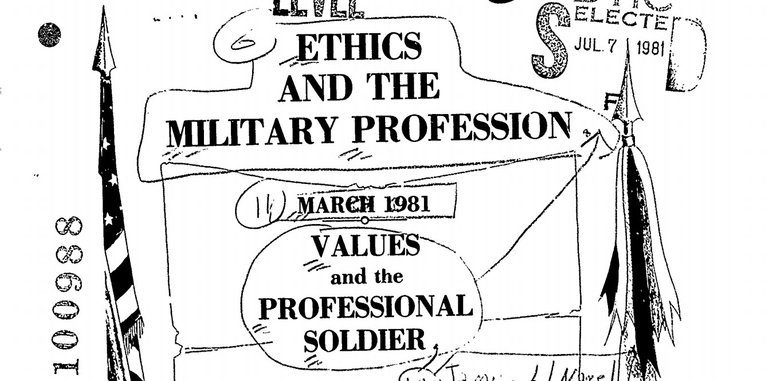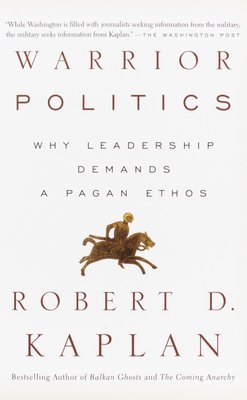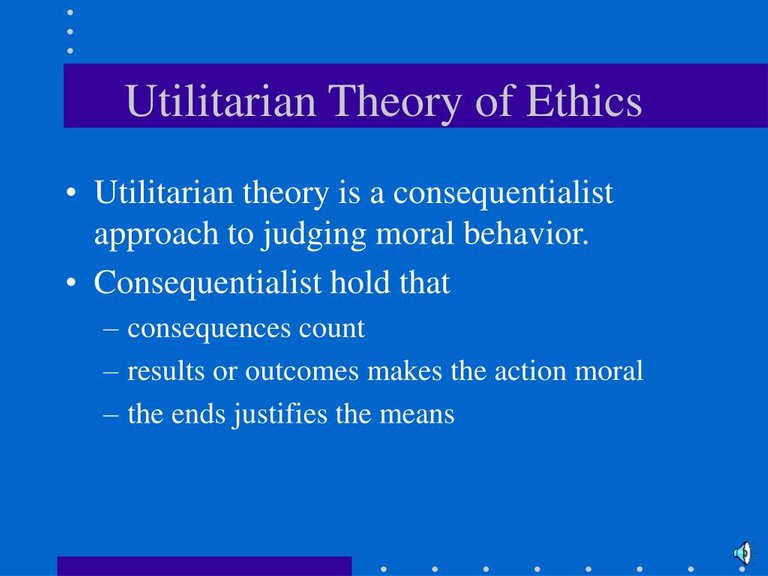Intro
As part of my ongoing graduate work in Intelligence Studies, I am sharing some of the discussion I do in these courses.

The question
Within the national Intelligence Community what are the primary legal restrictions to comprehensive integration? For example, can federal law enforcement share criminal information with the DoD? Use outside sources in developing your response. Additionally, what ethical concerns confront an analyst in the modern joint/inter-agency era.
….
Legality and morality are two completely different animals, but intelligence professionals need to understand how to operate within the reach of each animal. Mission overrides all other considerations, and the mission of the IC is to defend the Constitution, which itself is meant to defend the citizen of the United States. All IC members swear the oath (“5 U.S. Code § 3331—Oath of office,” 1966.)
The Principles of Professional Ethics for the Intelligence Community (2017) state this quite clearly as the first principle: “mission requires selfless dedication to the security of our Nation.”
While these are different animals, I will assume that law flows from ethics. I will focus on ethics, then, and be brief in discussing law (with the understanding that both must be taken into account in intelligence operations). With the Constitution as a legal foundation, there are a plethora of laws and Executive orders that determine the legal boundaries of the IC, beginning with the National Security Act of 1947 (I will post an incomplete timeline of the evolution, or possibly devolution, of these legal definitions as a separate comment).
[HIVE note -this timeline was published here as Legal Evolution of the Intelligence Community Timeline ]
There are two major divisions in the way that ethics are approached, the Kantian (or deontological) mode and the utilitarian mode. Gross (2010) and Bellaby (2012) lay out the Kantian mode, which takes a universalist approach to how ethics are viewed; in which all actions are judged by a common standard. Kaplan (2002), on the other hand, presents an argument that national defense ethics should be based on the defense of the nation, a fully utilitarian point of view. Kaplan also notes that law is downstream of ethics, and makes the point that “Americans can afford optimism partly because their institutions, including the Constitution, were conceived by men who thought tragically.”
Michael Herman, in Andregg’s 2007 collection on intelligence ethics, asks, “How does collection for purposes of 'national interest', considerably broader than security, rank among the moral hierarchy of causes? Does promoting national economic well-being warrant methods that might be justified by considerations of national security?” This is hard to answer on deontological grounds, and easy to answer on utilitarian grounds.
Seeking to layer on absolutist morals on a dirty and necessary job leads to confusion. Let’s go back to the Principles of Professional Ethics for the Intelligence Community and look at some self-contradictory ideas. Remember, “mission requires selfless dedication to the security of our Nation” yet “all our actions, whether public or not, should reflect positively on the Intelligence Community at large” leads to institution protection CYA behavior like the redaction of extravagant expenses like a $70,000 table from corruption hearings (Chapman, 2018). Don’t get me started on “Diversity” for it’s own sake; if we need a Mandarin speaker, we go get a mandarin speaker...keeping a Mandarin speaker hanging around for no other reason than “Diversity” is counter-productive, and a waste of limited taxpayer resources.
Too many contradictory goals leads to confusion.
“We support and defend the Constitution, and comply with the laws of the United States, ensuring that we carry out our mission in a manner that respects privacy, civil liberties, and human rights obligations” should end at “defend the Constitution”. Where the Constitution defines privacy and rights of American citizens is the final determination; USC may be followed as a guide unless it contradicts the Constitution.
In other words, the intelligence professional needs to primarily concern himself with protecting Americans. Do what needs to be done to defend the Constitution in selfless dedication, and let the judges make their decisions afterwards.
REFERENCES:
5 U.S. Code § 3331—Oath of office. (n.d.). Retrieved November 12, 2019, from LII / Legal Information Institute website: https://www.law.cornell.edu/uscode/text/5/3331
Andregg, M. (Ed.). (2007). Intelligence ethics: The definitive work of 2007. St. Paul, Minn.: Center for the Study of Intelligence and Wisdom : Ground Zero Minnesota.
Bellaby, R. (2012). What’s the Harm? The Ethics of Intelligence Collection. Intelligence and National Security, 27(1), 93–117. https://doi.org/10.1080/02684527.2012.621600
Chapman, M. (2018, May 29). FBI Redacted Cost of McCabe’s Office Conference Table: $70,000. Retrieved November 14, 2019, from CNSNews.com website: https://www.cnsnews.com/news/article/michael-w-chapman/fbi-redacted-cost-mccabes-office-conference-table-70000
Gross, M. L. (2010). Moral dilemmas of modern war: Torture, assassination, and blackmail in an age of asymmetric conflict. Cambridge ; New York: Cambridge University Press.
Kaplan, R. D. (2002). Warrior politics: Why leadership demands a pagan ethos (1st ed). New York: Random House.
Principles of Professional Ethics for the Intelligence Community. (2017). Retrieved November 14, 2019, from https://www.dni.gov/index.php/who-we-are/organizations/clpt/clpt-features/1789-principles-of-professional-ethics-for-the-intelligence-community

Comments
…
You took the bull by the horns. Law is derived from ethics, so ethics must be understood to make good law. Placing your discussion on a continuum of idealism to reality highlights problems with absolutist moral values.
And intelligence is a field where these problems stand out the greatest. Especially when we try to apply universal moral values across different interest/cultural groups. Some cultures value lying to out group members.
Al-Taqiyya fi’l Islam, written by Professor Sami Mukaram.Taqiyya [“religious dissimulation”] is of fundamental importance in Islam. Practically every Islamic sect agrees to it and practices it . . . We can go so far as to say that the practice of taqiyya is mainstream in Islam, and that those few sects not practicing it diverge from the mainstream . . . Taqiyya is very prevalent in Islamic politics, especially in the modern era (Ibrahim, 2009)
So applying a universal approach to morals is certainly not on the reality end of the spectrum.
REFERENCES:
Ibrahim, R. (2009). Taqiyya: War and Deceit in Islam. In E. D. Patterson & J. Gallagher (Eds.), Debating the War of Ideas (pp. 67–81). https://doi.org/10.1057/9780230101982_5
…
“In the world of intelligence it is a necessity to partake in unethical practices in order to protect a nation and the people within in it”
Coyne makes a good point, and it highlights the difference between deotological ethics (the ethics of intent) versus utilitarian ethics (the ethics of results). Under deotological (Kantian) ethics, moral values are universal and absolute. Under utilitarian ethics (Jeremy Bentham), moral value is determined by actions which bring the greatest utility to the greatest amount of people (which is gross oversimplification, but works as a summary); utilitarian ethics ethics can be applied locally (i.e, putting the interests of American citizens over non-citizens).
You bring up a good test for these morals with the "concern of whether information sharing violates people’s civil liberties." let's extend that to privacy versus security with mass surveillance; Kantian ethics forces you to make a absolute moral choice...which is better, spying on everyone for security is always good or always bad, and privacy is either valued or it is not. Utilitarian ethics allows for spying directly on those presenting a threat to the American people as a moral option.
…
Coyne, John, Dr. Peter Bell and Shannon Merrington. 2013. "Exploring Ethics in Intelligence and the Role of Leadership." International Journal of Business and Commerce 2, no. 10: 29-32. Accessed November 11, 2019: http://www.ijbcnet.com/2-10/IJBC-13-2905.pdf

Notes
The Notes are unformatted, yet contain some gems, as well as some items I felt too extreme for the classroom. I get my point of argument across, but sometimes I hold back full punches in fear of Title IX Kangaroo Courts
Key Learning Concept 1
• There are multiple laws and Executive Orders that apply to the Intelligence Community starting with the National Security Act of 1947
Key Learning Concept 2
• The ethical behavior of members of the Intelligence Community is a cornerstone requirement.
https://www.dni.gov/files/documents/CLPO/Principles%20of%20Professional%20Ethics%20for%20the%20IC.pdf
ME: rofl what a joke
ME: note that several principles are self contradictory “mission requires selfless dedication to the security of our Nation. “ yet “all our actions, whether public or not, should reflect positively on the Intelligence Community at large. “ IC needs to take its lumps when it vilates the constituion.
Too many contradictory goals leads to confusion
“We support and defend the Constitution, and comply with the laws of the United States, ensuring that we carry out our mission in a manner that respects privacy, civil liberties, and human rights obligations. “
should end at “defend the constituion”. Where the constituion defines privacy and rights of American citizens is the final determination, USC may be followed as a guide unless it contradicts the constituion. (we threw away the 4th Amendment during prohibiton, and never looked back.)
Ill’ reverve thoughts on the joke of diversity as a goal
Mission overrides all other considerations
all IC members swear the oath ((“5 U.S. Code § 3331—Oath of office,” 1966.) )
5 U.S. Code § 3331—Oath of office. (1966). Retrieved November 12, 2019, from LII / Legal Information Institute website: https://www.law.cornell.edu/uscode/text/5/3331
Kaplan
Americans can afford…
Kaplan, R. D. (2002). Warrior politics: Why leadership demands a pagan ethos (1st ed). New York: Random House.
Legality and ethics are two very different animals
ME:Do what needs to be done, and let the lawyers strangle every one left over with their soft, manicured hands
ie, let the courts hash it out.
Oh wait, courts compromised too
Title 10 vs Title 50, natsec act 1947
Andregg, M. (2007). Intelligence ethics: The definitive work of 2007. St. Paul, Minn.: Center for the Study of Intelligence and Wisdom : Ground Zero Minnesota.
- Albert C. Pierce
“ would benefit from developing
an ethos for the intelligence profession, analogous to the professional military ethic.”
OK, as long as it adheres to the mission
“ How the U.S. military redeemed and resurrected itself. There was no master
plan; this was not a coordinated, top-down, senior leadership-driven effort. The work was
done and the progress was made by various players at the mid- to senior-levels, in various
places, sometimes working in parallel and even coordination with others, at other times
working seemingly alone”
“ This was an intellectual effort that involved not
only renovating of these schools’ curricula, but also producing a number of books by military
professionals that analyzed and critiqued the military’s performance during Vietnam.”
ME: criticism of intellectual community; artist vs craftsman vs scientist
“ he intelligence community needs to engage in serious introspection
and self-reflection, and get beyond blaming the political leaders, the press, and others for the
intelligence professionals’ own failures.”
“ What an ethos is and does, and how one might go about developing one.
ME: as always, start with the mission, and go from there
“ When I use “intelligence community” here, I do not mean the overall organizational structure of the various
intelligence agencies, but rather the entire group of intelligence professionals from the various agencies.
- Michael Herman
“ It has usually been assumed that there are no
ethical restraints on intelligence's wartime methods, except for the legal safeguards provided in
twentieth century law for prisoners-of-war and civilians in occupied territories”
ME: make sure you read and UNDERSTAND atricle III of the geneva convention, which defines legally POW , civilian, and franc-tireur...then againunderstand internation law is just a set of treaies.
“ How
does collection for purposes of 'national interest', considerably broader than security, rank
among the moral hierarchy of causes? Does promoting national economic well-being warrant
methods that might be justified by considerations of national security”
ME: filed under no shit
Bellaby, R. (2012). What’s the Harm? The Ethics of Intelligence Collection. Intelligence and National Security, 27(1), 93–117. https://doi.org/10.1080/02684527.2012.621600
“Reports of abuse at detention centres such as Guantanamo Bay and Abu Ghraib, the ever increasing use of technological surveillance, and the increased attention on the use of torture for intelligence collection purposes have all highlighted a need to make an explicit statement about what is and what is not permissible intelligence practice.”
ME: The only considerations that matter are Constituional legality(the means by which we as nation decide what is moral AND legal), and the security of the American people.
Gross, M. L. (2010). Moral dilemmas of modern war: Torture, assassination, and blackmail in an age of asymmetric conflict. Cambridge ; New York: Cambridge University Press.
Kantian ethics over utiliatarian ethics. Same approach as bellaby. Differs in defingin terrorism “types”
ME: American lives more valuable than non Americans; the interests of America outwerigh the human rights of any non-American.
ME: the only thing that matters in definging categories of threat is how to effeciently counter them
Mitchell, J. E., & Harlow, B. (2016). Enhanced Interrogation: Inside the Minds and Motives of the Islamic Terrorists Trying To Destroy America. Crown Forum.
“explained why the Democratic SSCI staffers, the lawyers who put Feinstein’s report together, refused to correct errors of fact when they were pointed out by the CIA in its response to a draft of the document, and why they never interviewed anyone from the CIA who had been directly involved in the interrogation program.”
“Facts do matter, and allegations alone can never warrant lynching the accused, except perhaps in the minds of some advocacy journalists and Democratic senators who view the cause as so important that it is worth winning at the expense of honesty.”
As always, I deeply appreciate your work and research to make this resource available to me.
It is facile to dismiss out of hand absolutism. Only after some layering of erroneous principles on factually demonstrable ones does this produce absurd results, so often cited (generally speaking. Not saying you do so). Certain principles must underlie every rational consideration. Gravity. The speed of light. Torture is evil.
I once had a conversation with a Baptist pastor (shortly after the Bush II administration issued a legal justification of torture publicly) that it was lawful to torture suspects because there were terrorists. The Bush legal publication declared that the President of the USA was lawfully authorized to crush the testicles of a child to facilitate interrogation of his parents.
This is absolutely false. It isn't provisionally false. It doesn't matter if you think there's a nuke in New York City sewers that will go off if you don't catch the terrorists. It isn't lawful to sexually mutilate a child. Nothing can ever justify it.
Today the propagandists have introduced the push to make vaccination mandatory, and have included both injection of tracking chips and DNA modification in association. It is simply not lawful to modify the DNA of a sovereign person. No disease, economic necessity, or any other sophistry can change that fact. It is absolutely unlawful and will always be.
This demonstrates why it is necessary to accept some universal absolutes, and why the Declaration of Independence rests on absolute principles, that are therein stated to be self-evident.
One essential absolute is that the authority of government, and thus the IC it can field, is delegated to it from sovereign persons. Those sovereign persons are not absolute tyrants. They don't have the authority to torture, surveil anyone they want, or undertake to poison or harm peoples at will. This means they can't delegate such authority to government, and the IC cannot derive therefrom any such authority.
It's absolute. Any assumption of authority that is not delegated voluntarily by informed sovereign persons to the IC is unlawful. It can't be otherwise, and it doesn't matter if it's presumed necessary to the defense of the American people.
Thanks!
Interesting :)
you are going to remove your comment from this post, or I will begin flagging you as well
This is a spam comment
GET IT OFF MY PAGE WITHIN ONE HOUR; I AM AT 100% DV STRENGTH
2:25 PM CST